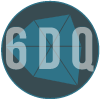
What is Framing in Decision Making?
Framing is a practice used to discuss and align on a problem or opportunity that exists with stakeholders, decision makers and project team members. It is the foundation that decisions and analysis can be built upon.
Through a lens…
If we think of framing in the context of looking through a lens then we can consider what we want to focus on and what we don't. How do we want to view the problem or opportunity? Too narrow and we potentially solve the wrong problem or miss potential value and too wide, we struggle to solve and become paralysed by analysis.
Who should use framing?
Project Managers, Decision Makers, Leadership, Individuals. Framing is best facilitated by an independent, neutral facilitator, which will help to keep the process objective.
Benefits of framing
The benefits of using framing for decision making are:
• Projects/decision making set up for success.
• Stakeholders, project team, decision makers are aligned, limiting project failures later on.
• Project scope is clearly defined up front.
• Issues that could arise are discussed and shared at the start of a project.
• Can enable creative solutions for evaluation
• New project team members can very quickly understand the project.
• Project team can visualise outcome of a successful project.
• Framing allows project teams to focus on the significant decisions at each stage.
• Mitigating cognitive biases.
When should you use framing in business?
Framing should always be at the start of a project, when there are multiple stakeholders and definition and alignment required for the project. A Frame refresh can also be carried out throughout the project lifecycle if there are material changes externally or if new information becomes available, especially at the start of each new phase.
Craig Mitchell, Decision Quality Consultant at 6DQ comments: “Without framing you can still execute a project well, however, it might just be the wrong problem you’ve solved!”
6DQ helps organisations go through the whole decision process, which starts with framing. We use six steps to help companies make strategic decisions, by facilitating workshops - which can be conducted remotely - and providing mentoring support and training to decision makers. These decisions have played an important role in survival, increasing market share and economic growth for a range of companies in the North-east of Scotland, such as Maersk Oil (JV strategy sessions, Business Development & Exploration Opportunities) and EnQuest (Asset Strategy, Terminal Rationalisation).
For more information, please contact us directly.
